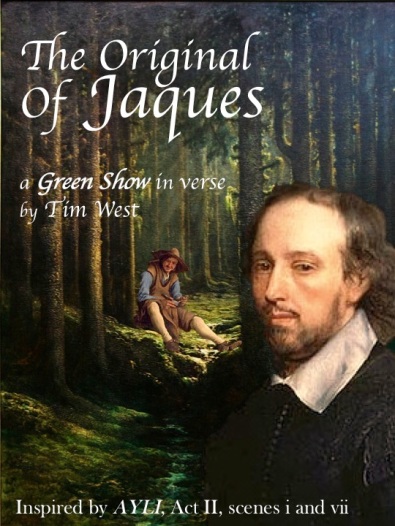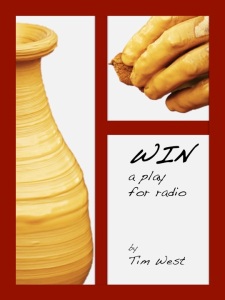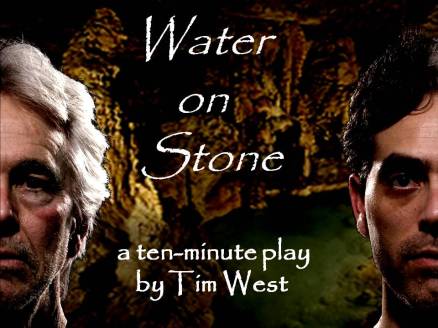January to June is awards season, the annual accounting of deserving individuals and organizations from the previous calendar year. It is the time for all the awarding bodies, self-appointed or industry-based, to name those they’ve selected as worthy of their acknowledgement for their work in the year past.
There are two general responses to this.
For millions who get a kick predicting winners and losers beforehand, and afterwards reviling the awarding agency when they pick wrong, it’s a tradition. Some settle in early with popcorn and play bitchy Mr. Blackwell with the various versions of overpriced tasteless fashion statements on the famed Red Carpet. Some just get into handicapping the artists, and comparing proceedings with their picks throughout the evening. Some enjoy evaluating the host, the musical numbers, the presenters and the acceptance speeches for intellectual and emotional content, appropriate tone, and proper length. It takes on aspects of a major sporting event, for many observers.
However, there are less vocal but nonetheless disaffected audiences for the annual event. The recent controversy over the representation of minority-status ethnicities among Oscar nominees is only the most recent example of this disaffection, which surfaces occasionally when nominations have apparent socio-political implications.
My own dislike of awards starts-out childish and personal, I admit. It dates back to my profound puzzlement over 1971 nods for Best Picture, Best Director and Best Actor going to the biopic Patton over my favorite, Five Easy Pieces, and actor George C. Scott’s rejection of an Oscar for the lead role as the doughty old general. Five Easy Pieces, in my opinion, was the better film. Scott, I thought, should have won for 1967’s The Flim-Flam Man. I was only ten, but like everyone I had opinions. I still think history will bear me out –at least on Five Easy Pieces.
I feel like this disappointment in the results is the fate of all awards. It is, I admit, in origin childish and personal, and not at all assuaged by my grandmother’s simpering exhortation to “Think how good the other team feels!” And I can’t understand why this perception of injustice in awards isn’t more common. Did you never notice how the awards in Scout meetings went to the biggest finks? Did it never seem to you that “High School Standouts” seldom featured a “Class Clown” with a truly outrageous but understated sense of humor, but went to the same braying fellow who won “Best Laugh”? Don’t awards seem to exist to dole out privileges that are no more earned than most privilege?
My own dislike of awards grew with my awareness as an adult. The actors I’ve admired since my youth were character actors, working actors with little public acknowledgment, their faces well-known but their names often little-recognized. Though there was a category of “Best Supporting Actor,” it didn’t seem to embrace the kind of actor I refer to, but instead was reserved for stars slumming in smaller roles. The list of actors never even nominated includes a surprising array of talent, but suffice it to say that the list is led by the late great and much beloved Alan Rickman.
When I became an actor, I was appalled to see good hard work passed over in my own community. My first exposure to that was a colleague whose brilliant Salieri went unsung, while the poor, lackadaisical effort of the actor who played Mozart was celebrated. I was told it is common for awards to reflect a love of the role as well as the actor. More recently, I’ve been disturbed to see how being passed over for nominations or awards has wounded friends in the profession, who labored to achieve worthy performances only to have their sense of accomplishment turned to ash by the lack of inclusion in the lists. Though of course these artists can be arraigned for needing to develop a thicker skin, it is hard to take anything so profoundly a part of one’s identity as “Nothing personal.”
As much as we like to say “It’s an honor just to compete,” we all recognize how hollow that sounds after someone has lost a competition. We’re trying to have our hierarchies and partake of the communal cake, too.
Though it may be a display of some deep-seated need in the race, the phenomenon of awards seems particularly pervasive in American culture. Americans have always been fond of the superlative: the best, the most, the biggest. Too, we like to think of ourselves as a classless society, a meritocracy where the best rises to the top. It is, as Americans see it, a confirmation of our belief in fair play: with a level playing field, the best will prevail.
Closely examined, however, it is a kind of implicit Social Darwinism, a belief that the best always rises to the top, leaving the remainder in the mudsill. It offers a species of circular logic to confirm its truth: creatures prove themselves to be the best, or most adaptable, since they survived and thrived; they were able to do that, of course, because they were the best. Ipso facto, it props up the status quo.
This explains the fierce reactionary resentment one hears voiced in various forums, about what we might call the “Student of the Month” syndrome: “If everyone is a winner, then no one is.” Acknowledgement for everyone challenges the concept of hierarchy. The concept of equality alters the vertically oriented order to things. Without selective acknowledgement of worth, we fear that we labor in an anarchic environment where merit has no external motivation. Social displays of coherent and cohesive values seem to lack positive reinforcement, and our actions seem to arise from internal and personal states that are not subject to any feedback.
So, this positive disposition toward awards is quite understandable. It’s natural to seek positive reinforcement from one’s community. The danger, in cultural terms, is the confusion between that pluralistic alignment with one’s community and subscription to the concept of the absolute authority. Pernicious in politics, it is deadly in the arts. A sense of objective ‘best’ plays into disturbing and increasingly prolific memes that render divergent viewpoints irrelevant in the face of a universally acknowledged, standardized truth. It’s a method for the marginalization of other voices –diverse perspectives on our culture, which not only have a right to be heard, but perhaps need to be. The arts is the place for this. If any field is dedicated to replacing today’s mainstream thought with tomorrow’s innovation, it should be the arts. Awards, like all rewards, work against experimentation, unless experimentation is specifically being cited for positive feedback –as with sciences. Otherwise, the easy remuneration that comes with following established systems of reward will likely militate against any work that truly dares.
Awards, unless specifically instituted to provide positive feedback for non-commercial undertakings, steer artists toward gearing their efforts to popular standards, rather than attuning their practice to their own different drummer. If we give credence to awards, we identify as believers in the concept of objective “best” in the arts. If we agree with the way that the artists were acknowledged, then we have the objective confirmation of our opinions in the fact of that public acknowledgement. Even if we disagree with individual awards, though, we show that we subscribe to the idea.
To be sure, individual awards do not go unchallenged. In awards season, the Kanye Wests of the world hasten to announce to a captive audience their objections to particular instances of artistic recognition. They feel a need to advocate for “my girl, Beonce” over vanilla Taylor Swift, or whatever their version of that dichotomy is.
Such objections, of course, have their own agenda, which is often based on objective and quantifiable, extrinsic elements such ethnicity, gender, political persuasion, and a host of other –essentially social— considerations, more than on intrinsic artistic merit, which seems to remain stubbornly subjective.
However, objections to individual awards never challenge the basic assumption of all awards, and in fact serve to reinforce their seeming authority. Kanye’s quibble acted in much the same way that the Bundy family’s opposition to individual acts by the Bureau of Land Management reinforces federal prerogatives and undermines their putative revolt: Their claim is compromised by their acceptance of the largesse when it suits them.
Such objections never surface when our needs are being met, and when you see such people accepting benefits even as they complain about the system that distributes them, it becomes clear that they’re not challenging authority, but trying to leverage it. They’re just angry because they didn’t get theirs.
To be sure, we do hear hints of a more all-encompassing problem with awards. There are those lists of the surprising number of indisputably “great,” iconic Hollywood stars who never garnered the little gold statuette named for someone’s Uncle Oscar, and how many duds did. More tellingly, we often see actors awarded the honor late, for a less deserving role, after being passed over for more notable work earlier in their career. These observations lose their force when one complains about, say, Jim Carey being passed over for acting accolades, or disputes an obviously worthy award out of prejudice. However, it is a telling fact that actor Peter O’Toole was never honored with an Oscar, despite eight nominations, while John Wayne was, with only three nomination –telling about what kind of work the industry is really promoting. The patriotic Patton over Bob Rafaelson’s quirky tale of familial disaffection and artistic alienation.
As an aside, surprisingly few people in show business know that the Academy of Motion Picture Arts and Sciences (AMPAS) was founded by ultra-conservative industry mogul L.B. Mayer as a way to forestall the development of the left-leaning craft unions, the Screen Actors Guild and its more radical sister organizations for directors and screenwriters. This draws attention to the agenda of awards.
Occasional scandals with over-the-top marketing campaigns –employing mass mailers of materials to Academy members “For Your Consideration” to gain the nomination or award so essential to prestige marketing— make it clear that the annual red carpet event at the Helen Chandler Pavillion is still part of this self-congratulatory identification with the mainstream, this jockeying for status. The parade of Hollywood royalty AMPAS is a marketing arm of the industry as a whole. This is, of course, why they ceased televising awards for technical achievement in film. Nobody goes to see a flick because the sound guy won for it.
There’s even a kind of reverse cache to being passed over for an award. Popular soap-opera staple Susan Lucci achieved a special kind of notoriety when she was dissed for a daytime Emmy, year after year. So many worthy musicians have been passed over for induction into the Rock and Roll Hall of Fame in favor of lesser candidates (too often, not even rockers) that one could populate a separate museum with the rejected artists.
This sense of injustice is a frequent response to public acknowledgement of the arts. It feeds into the same emotional spike that sports fans experience when “We was robbed” by a referee’s questionable call, and disputing the results is part of the fun of awards season in the same way that booing the umpire is an integral part of the enjoyment of baseball.
Such disputes are so common that they have served to promulgate whole new artistic canons. Painters whose lack of adherence to proper form barred them from an academic gallery established their own outdoor exhibit for their “Impressionist” works, which rapidly supplanted Naturalism in an age of photorealism. Performers left out of a state-sponsored arts festival founded the dynamic ‘Fringe,’ which in Edinburgh almost immediately outsized the stodgier official event and across the next 75 years grew to embrace festivals in any city that wants to identify as an ‘arts destination.’
So, I don’t argue that awards serve no purpose. In fact, one of the strongest arguments for awards is that artists deserve acknowledgement, and need it. Their work deserves social affirmation, and requires it. Like most, I believe that merit should be rewarded. And, hey, awards are fun. Who doesn’t like prizes?
Yet the definition of merit is hazy, especially in the arts. There’s little consensus as to what defines a superior performance, when there is such a complex skein of opportunity, synergy and timing. And as much as we like to think or say that we all bask in the reflected glow, to say that awards benefit everyone by upping everybody’s game and bringing much needed emotional investment to the arts is just another form of trickle-down in a culture already burdened with too much vertical.
However, I recognize that mine is a minority viewpoint. Like a democratic socialist or a person who doesn’t like pizza, I’ll learn to keep my mouth shut. I’ll avoid this pattern of competitiveness more appropriate to the cut-throat high-stakes gamesmanship of the awful real estate office in David Mamet’s play, Glengarry, Glen Ross. (in the minority of folks who aren’t Mamet fans, either) or, at least, endure the kind of ‘silly season’ we can expect in a world dominated by talk of “winners” and “losers,” where the zero-sum solutions of electoral politics trump reasoned discourse and assessments in a community of like-minded people.
You can have Patton. I’ll stick with Five Easy Pieces.






